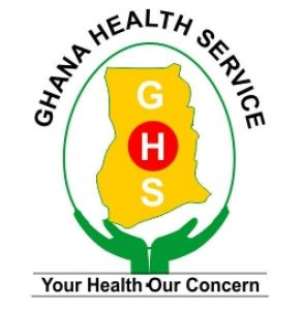
The Ghana Health Service has presented its report on the circumstances which led to the death of a 70-year-old man to Parliament.
Prince Anthony Opoku Acheampong died in his car at the Lekma Hospital about a month ago after he was refused care at seven major hospitals in Accra due to the lack of beds.
His death sparked public outrage as Ghanaians took to social media to share similar experiences and demand a change in the healthcare system.
In response to Citi News' demand for government action, the Ghana Health Service promised to investigate the matter and to deal with no bed syndrome once and for all.
The Director-General of the Ghana Health Service Dr. Nsiah-Asare told Citi News, what these recommendations are.
“The recommendations include free hospital care, strengthening of emergency management of all our institution, also strengthening the referral policy document that we have in the Ministry of Health and making sure it works. Another thing we also looked at is logistic supply and human resources and financial issues so that we give proper emergency management to the patients.”
“We also look at staff attitude, staff distribution, especially training staff for emergency care in all our institution. We also looked at the financial issue like emergency patients being able to pay their bills and more importantly the report also looked at the bed management in all our health institution,” he said.
Before this report, the Ghana Health Service charged government hospitals not to turn away patients in critical conditions due to lack of beds.
The directive has since led to congestion at Korle-Bu Teaching Hospital in particular with doctors having to treat patients on the floor while others have to purchase plastic chairs to receive care
Meanwhile, Citi News' checks show several completed satellite hospitals like the Ofankor and Kasoa hospitals remain closed.
But Dr. Nsiah Asare said even though opening completed hospitals and completion of facilities under construction are essential, the recommendations do not include same.
“We look at all those things, I mean there are facilities, which are being put up, which are not completed, we also look at the number of bed that we have in the system. Facilities which have not been completed, facilities that we cannot use, but it all depends on our financial strength and the money we need to complete them. We can talk, but it did not form part of our report,” he said.




 2024 election will be decided on the grounds of the economy; choice of running m...
2024 election will be decided on the grounds of the economy; choice of running m...
 Dumsor: We're demanding less; just give us a timetable — Kwesi Pratt to ECG
Dumsor: We're demanding less; just give us a timetable — Kwesi Pratt to ECG
 Do I have to apologise for doing my security work, I won’t – Simon Osei-Mensah r...
Do I have to apologise for doing my security work, I won’t – Simon Osei-Mensah r...
 Prestea and Bogoso mines: Complete payment of outstanding salaries not later tha...
Prestea and Bogoso mines: Complete payment of outstanding salaries not later tha...
 NDC postpones Prof. Opoku-Agyemang entry tour to May
NDC postpones Prof. Opoku-Agyemang entry tour to May
 All my businesses have collapsed under Akufo-Addo — NDC Central regional chair
All my businesses have collapsed under Akufo-Addo — NDC Central regional chair
 Military, Prison Officers clash in Bawku, three injured
Military, Prison Officers clash in Bawku, three injured
 GRA-SML contract: MFWA files RTI request demanding KPMG report
GRA-SML contract: MFWA files RTI request demanding KPMG report
 Court threatens to call second accused to testify if NDC's Ofosu Ampofo fails to...
Court threatens to call second accused to testify if NDC's Ofosu Ampofo fails to...
 Family accuses hospital of medical negligence, extortion in death of 17-year-old...
Family accuses hospital of medical negligence, extortion in death of 17-year-old...
